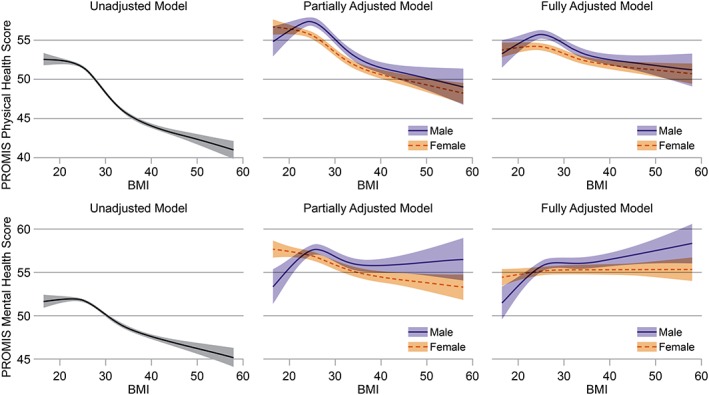Figure 2.

Model‐based estimates showing the association between body mass index (BMI) and health‐related quality of life in both physical and mental domains. We show model‐based estimates and 95% confidence intervals for unadjusted models. Subsequent models are partially adjusted, controlling for age, gender, income, education, employment, marital status, race/ethnicity, smoking status, number of people age < 19 years living in the home, history of high blood pressure, history of diabetes, history of high cholesterol and spirituality. Fully adjusted models control for all of the previous covariates, with the addition of diet and physical activity. The F‐tests of the overall association between BMI and quality of life were statistically significant for both physical health quality of life (p < 0.0001) and mental health quality of life (p < 0.0001). Estimates from the partially and fully adjusted models are shown for subjects with the sample median value for age (52) and with values of all other covariates equal to the sample mode. PROMIS, Patient‐Reported Outcomes Measurement Information System.
